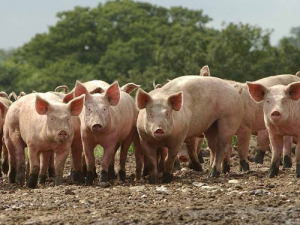A new report warns that a virus decimating parts of the global pork industry could spread to more countries next year.
Rabobank’s Global Animal Protein Outlook 2020 says frequent shipments of feed and live animals and the movement of people and equipment across borders will spread African swine fever (ASF).
However, Rabobank’s animal proteins analyst Blake Holgate doesn’t expect additional countries to experience the same level of impact as China and Vietnam.
The fatal pig disease has slashed China’s hog herd by as much as half since August 2018. Millions of pigs have died from or been culled to control ASF in China and other Asian countries, such as Vietnam.
Holgate says the herd loss expected to be caused by ASF in 2020 should be lower than in 2019, as recovery extends well into the 2020s.
While New Zealand and Australia officially remain free of ASF, both countries have stepped up biosecurity efforts to manage the threat.
A report released last week by Australia Pork Ltd (APL) says the national economic impact from an ASF incursion in Australia could top $2 billion over five years.
APL chief executive Margo Andrae says while there has been a significant increase in virus detection at their borders in recent months, it is crucial that all participants in Australia’s biosecurity system play their part in managing the threat.
“The threat of incursion from African swine fever is not one we can take lightly. Not only is our pork supply at stake but the jobs of 36,000 Australians are at risk,” Andrae said.
The latest testing figures released by Australian Border Security found that 48% of pork products seized at airports and in international mail during September 2019 were contaminated with fragments of the virus. This was in addition to three samples containing foot and mouth disease fragments, which were immediately destroyed.
ASF has spread across Asia since its outbreak in China last summer. The disease made its way to South Korea in September and Japanese officials say it could hit there any day.
The Japanese agriculture ministry is seeking parliamentary approval to allow pig culls as a preventive measure if the disease is detected in Japan.
Meanwhile 20 cases of ASF have been found in Poland, the first outbreak in Europe.



















